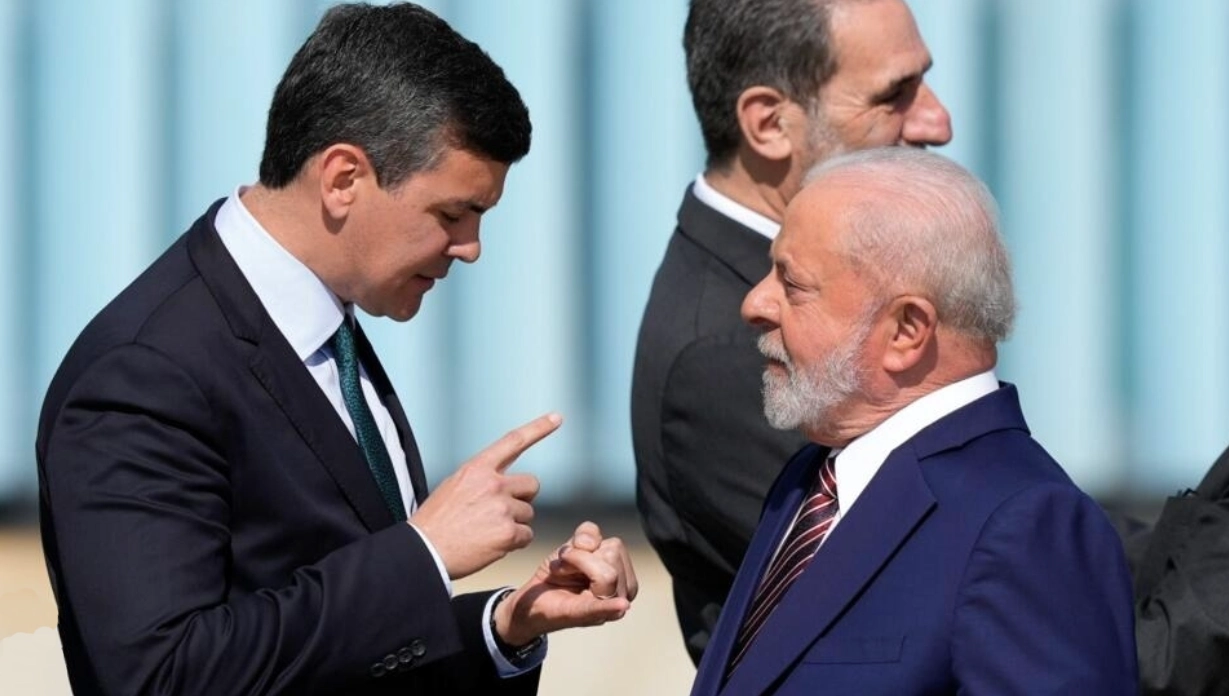The election of the president of Paraguay, Santiago Peña, coincided with the political return of President Luis Ignacio Lula da Silva. The two figures share a very particular stamp, that of presidential diplomacy. Lula returned to the world stage with enormous impetus in terms of international relations. In a certain sense, he echoed and amplified the expression used by President Biden in his inaugural speech: “We are back”. Indeed, after a few months, no one could doubt that Brazil was back, playing a prominent role in the concert of nations, with its lights and shadows, certainly. The case of Santiago Peña is different because it is a much smaller country with less weight in the international context. However, his interventions have put the country on the map and have even caused surprise among its neighbors, accustomed to a lower profile role. The new stamp that the Paraguayan president is trying to give to his foreign policy makes a difference. It remains to be seen what the impact will be.
In December 2023, Brazil will transfer the pro tempore presidency of Mercosur to Paraguay. Considering this transition process, President Santiago Peña has reminded President Lula that the deadline for concluding the agreement with the European Union expires that same month and that if the Europeans do not express themselves regarding the counter-proposals on environmental issues, the bloc should project itself toward regions such as the Middle East and Asia. The problem is that the strength of the Paraguayan president to lead this change of perspective may not be the required one, nor will he find the most propitious scenario. We refer above all to the fact that we are facing a situation in which, on the one hand, relations between Mercosur’s sister nations are not going through their best moment and, on the other hand, there is an Argentine political context full of uncertainties.
Indeed, one of the most current issues at regional level is the dispute over the toll being charged by Argentina to vessels using the Paraguay – Paraná Waterway, a toll that is rejected by Paraguay and the other partners of the Waterway Agreement Commission (Brazil, Bolivia and Uruguay). In the context of this tension, the issue of the collection of energy from the binational hydroelectric power plant Yacyretá, which the Paraguayan side cedes to Argentina, also came up. Paraguay has put on the table the option of using 100% of its energy, instead of ceding it to Argentina for compensation, since Buenos Aires is not honoring the payments properly. Curiously, in parallel, Argentina started to hold trucks transporting liquefied gas to Paraguay, giving signs of an escalation of the trade war.
In addition, the Argentine political landscape looks very threatening from the Mercosur perspective. The fact that the ultra-liberal candidate of Liberty Advances (LLA), who obtained the highest percentage of votes in the PASO, Javier Milei, is a fervent free trader is a clear indicator that, should he win the presidency, the idea of an imperfect customs union, with a porous common external tariff, will clash head-on with such ideology. This would imply a new crisis at the level of understanding among South American countries, jeopardizing the ability of the bloc to act as a whole in integration negotiations with other regions, such as the European Union, or any other proposed by President Santiago Peña.
Undoubtedly, much of what we have just underlined will unravel over time. It remains to be seen if the EU will respond in a timely manner, first. If it does so satisfactorily, the challenge for Mercosur will be greater. This would be a historic trade agreement, in a very different era from the one that prevailed 20 years ago when this process began. None of the governments of the region, even with a Milei in the presidency of Argentina, could easily discard the option. The EU has promised not to reproduce the extractivist model of simply exploiting natural resources, be it lithium or soybeans. There is an accompaniment with investments that seek to strengthen more complex value-added production processes. At the same time, South Americans have promised to use their own regulations, in a sovereign manner, to ensure that agricultural and livestock production does not increase deforestation or squander CO2 sinks. Whether these promises are credible or not is another question. In the case of Paraguay, the country’s powerful agribusiness lobby has expressed reticence regarding environmental issue, the use of pesticides, and deforestation.
In any case, for President Santiago Peña and his presidential diplomacy, the conclusion of the Mercosur-EU agreement would force him to march more in unison with his peers of the Treaty of Asunción. This is simply because, by signing an agreement with the EU, the southern common market would be strengthened and the clauses that prevent bilateral free trade agreements would become more effective, thus taking away greater autonomy from Paraguay or any other country. Such was the case of Uruguay’s failed project to sign an FTA with China, which it declined in the end because it respected Mercosur regulations.
Although much depends on how the regional political space is configured, Peña’s position is delicate. He is the last South American president to maintain a relationship with Taiwan. His relationship with the United States is intermittently strained by USAID’s anti-corruption programs in Paraguay, as well as by the State Department’s designation of his political mentor and former President Horacio Cartes as “significantly corrupt”. On the other hand, an important part of his party’s bench wanted to repeal an agreement with the EU based on fallacious arguments about the imposition of gender ideology in education.
*Translated by Janaína Ruviaro da Silva from the original in Spanish.













